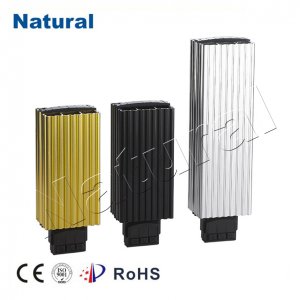Enclosure heaters are an essential component in various industries, providing a crucial role in maintaining optimal operating conditions for sensitive equipment. These devices are designed to combat the adverse effects of temperature and humidity, ensuring that valuable machinery and electronics are protected from damage caused by condensation, frost, and extreme temperature fluctuations.

What is an Enclosure Heater? An enclosure heater, often referred to as a cabinet heater, is a heating device specifically designed for enclosures or cabinets that house electronic components, instruments, or machinery. These enclosures are typically sealed to protect their contents from environmental factors, but this sealing can lead to temperature and humidity imbalances within the enclosure. Enclosure heaters are used to address this issue by maintaining a consistent, controlled temperature range. How Do Enclosure Heaters Work? Enclosure heaters operate on a simple principle – they generate heat within the enclosure to counteract the effects of low temperatures. This heat is typically produced through electrical resistance, with the heater elements carefully placed to evenly distribute warmth throughout the enclosure. By doing so, they prevent condensation from forming and ensure that the internal components operate within their recommended temperature range. Key Benefits of Enclosure Heaters Condensation Prevention: One of the primary functions of enclosure heaters is to prevent condensation from forming inside the enclosure. When warm air circulates, it reduces the likelihood of moisture buildup, which can lead to corrosion and electrical short circuits. Temperature Regulation: Enclosure heaters maintain a consistent temperature inside the enclosure, preventing overheating or chilling of sensitive components. This helps extend the lifespan and reliability of the equipment. Energy Efficiency: Many modern enclosure heaters are designed with energy efficiency in mind. They use sensors and controllers to adjust heating output based on real-time conditions, minimizing energy consumption. Extended Equipment Lifespan: By mitigating temperature and humidity fluctuations, enclosure heaters contribute to the extended lifespan of electronic components, reducing maintenance costs and downtime. Versatility: Enclosure heaters come in various sizes and configurations to accommodate different types of enclosures and equipment. They can be used in a wide range of applications, from industrial machinery to outdoor surveillance systems. Easy Installation: Most enclosure heaters are designed for easy installation, with mounting options that suit different enclosure types. This ensures that the heater can be conveniently integrated into existing systems. Applications of Enclosure Heaters Enclosure heaters find applications across various industries, including: Industrial Automation: Enclosure heaters are crucial in industrial settings to protect control panels, PLCs, and other automation equipment from harsh environmental conditions. Telecommunications: They are used in outdoor cabinets and enclosures to maintain stable temperature and humidity levels for communication equipment. Food Processing: In food processing facilities, enclosure heaters prevent moisture buildup inside electrical enclosures, ensuring the safety and functionality of equipment. Oil and Gas: Enclosure heaters are employed in remote locations to protect electronics used in oil and gas exploration and production. Pharmaceuticals: These heaters help maintain controlled environments for pharmaceutical manufacturing processes and laboratory equipment. In conclusion, enclosure heaters are an indispensable component in maintaining the functionality and longevity of sensitive equipment and machinery. By preventing condensation, regulating temperature, and offering energy-efficient solutions, they play a vital role in various industries where environmental conditions can pose a threat to equipment integrity. As technology continues to advance, so too will the capabilities of enclosure heaters, ensuring that they remain a key asset for businesses worldwide.